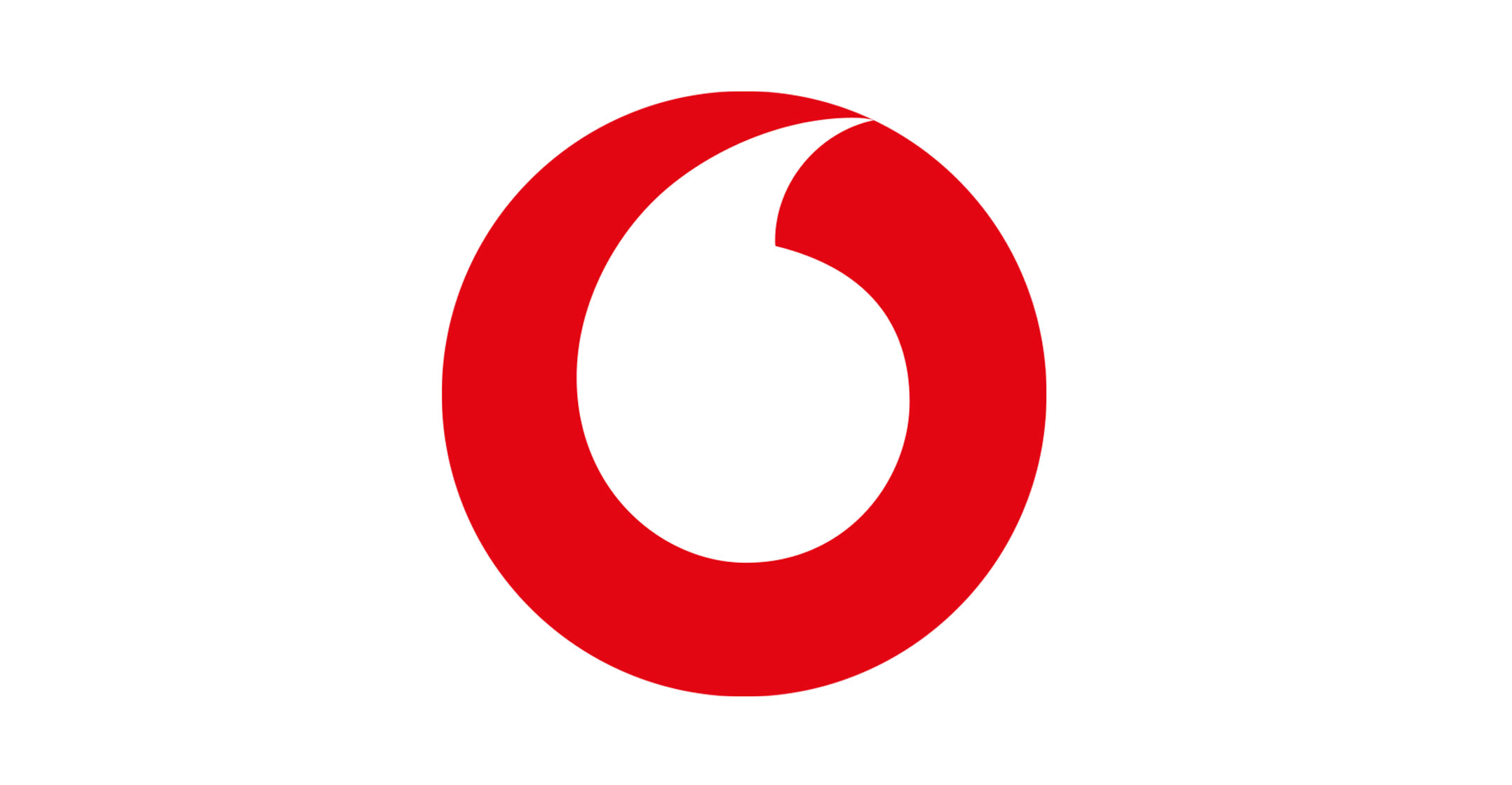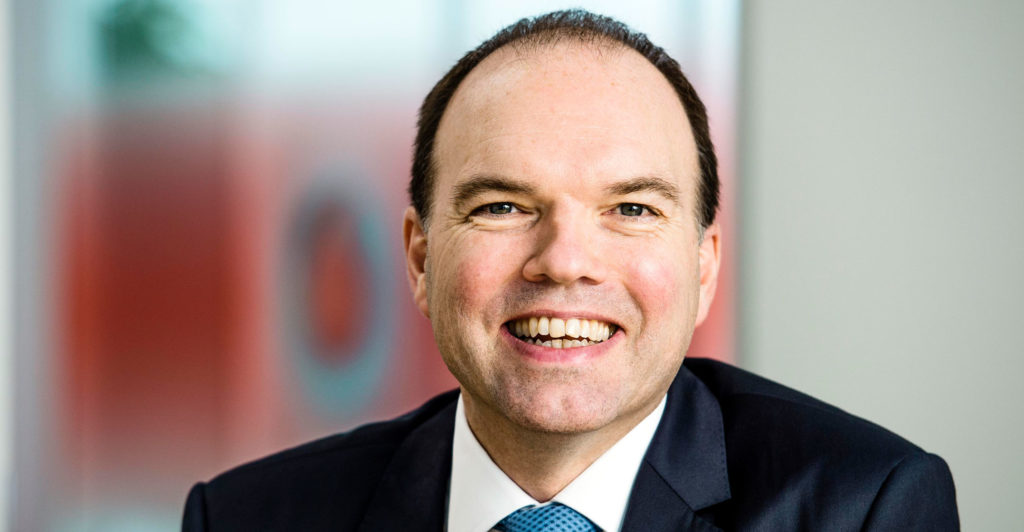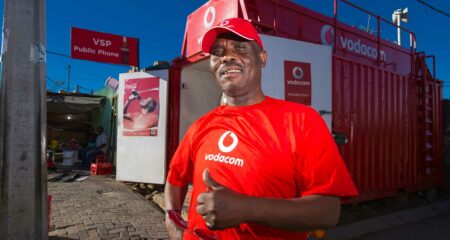 At Vodafone Group headquarters in west London, a sign hangs near the office of CEO Nick Read, telling passers-by: “It’s OK to make mistakes.”
At Vodafone Group headquarters in west London, a sign hangs near the office of CEO Nick Read, telling passers-by: “It’s OK to make mistakes.”
Three-and-a-half years into his tenure as CEO, with activist investors and hedge funds on alert, 57-year-old Read deflects media reports of “pressure” and doesn’t actually admit to making any big mistakes himself. “My view is every FTSE CEO has pressure,” Read said in an interview. “It just comes with the job.”
Read has worked at Vodafone, the parent of South Africa’s Vodacom Group, for 21 of the company’s 38-year existence. Nevertheless, the middle-aged CEO of a middle-aged company says he wants to embrace tech-style risk, eschewing traditional telecoms caution in a bid to boost returns on capital.
Vodafone’s challenges are different, though, from those faced by Silicon Valley tech giants. Instead of pivoting to the metaverse, Read has been busy cutting costs, standardising internal IT systems and selling off units in New Zealand and Malta. He has also carved out and listed the group’s mobile masts operation, aiming to tap into high valuations for infrastructure and to pay down debt.
Vodafone was founded in 1984 and sees itself as a pioneer. Yet as it approaches its fifth decade, many of its stellar achievements are now reminders of a distant past. Its network carried the first cellular telephone call in the UK, on 1 January 1985. The company then led the roll-out of out text-message technology, and was quick to expand globally.
Its shares peaked during the dot-com boom, giving it a market capitalisation of £214-billion in March 2000. Today they languish near 20-year lows, down 20% even since Read started as CEO in October 2018.
Squeezed
Vodafone spent the last decade retrenching and is now squeezed between former state monopolies like Deutsche Telekom, newer, price-cutting entrants such as Iliad, Big Tech and regulators. In the UK, key rival EE, owned by BT Group, is making a return on capital, while Vodafone may not be, according to regulator Ofcom.
Against that backdrop activist investors and hedge funds are now stirring, with some implying that the company could find better leadership.
The only regret Read will admit to is that he did not move faster to standardise technology. He doesn’t regret speeches since November in which he outlined ambitions to strike deals in the UK, Italy, Spain and Portugal. That surprised even company insiders, who worried their CEO might be weakening Vodafone’s negotiating position, according to a person familiar with the discussions.
Read’s speech increased expectations for operational mergers with rivals that could boost returns in Europe’s saturated and heavily regulated mobile telecoms industry. Seven months on, no deals have materialised — and the background noise is getting louder.
P. Schoenfeld Asset Management, a New York hedge fund, was quoted in the Financial Times in April criticising management’s missed opportunities. Jupiter Corporate Bond Fund also called for faster deals. Cevian Capital, Europe’s biggest activist fund, has built an undisclosed stake in Vodafone and is keen to see deals and less centralisation at the company, according to people familiar with the discussions. All three investors declined to comment.

Read remains unapologetic. “My view is a lot more about: do you feel you have a clear vision of where you’re going?” he said. “Sometimes with media, you get a couple of hedge funds with very small positions being very noisy, because they’re event-driven,” he added. “So it’s in their interest to stoke up media.”
He clarified he wasn’t talking about Cevian: “To be fair to them, I have yet to see them quoted on anything.”
Investors hope that regulators’ caution — which saw deals like Three’s bid for O2 blocked in the UK in 2016 — is now a thing of the past. The question is why Vodafone hasn’t already struck some deals.
In February, it negotiated an agreement between Vodafone España with private-equity owned carrier Masmovil, according to two people familiar with the matter — only to see Masmovil and Orange announce a merger of their own days later, leaving Read on the sidelines. Vodafone and Masmovil declined to comment, and a representative for Orange didn’t respond to requests for comment.
Read also turned down an €11.3-billion February offer for Vodafone Italia from Iliad and Apax Partners, saying it wasn’t in shareholders’ interests. Talks with CK Hutchison Holdings about a deal with Three UK have yet to yield results. British landline provider TalkTalk Telecom Group is another option, but on a recent earnings call, Read implied that a UK mobile deal was a higher priority.
A very small minority of certain people have been trying to argue there’s complexity in our model
Read says top investors, such as Emirates Telecommunications Group, now known as e&, are confident. Run by former colleague Hatem Dowidar, e& bought 9.8% of Vodafone shares in May and offered a full-throated endorsement. Abdrn, the company’s eighth largest holder with 1.7%, also stands by Read. “We are supportive of Nick Read’s strategy and in favour of giving him time to execute on it,” said Andrew Millington, its head of UK equities.
Read is also working on other options. Buried in Vodafone’s full-year results presentation earlier this month was a new plan to spin out the company’s fast-growing internet-of-things business, now pulling in €900-million in revenue. The company also owns, through Vodacom, Africa’s huge mobile money service, M-Pesa, and has made heavy investment in 5G networks, which could underpin smart cities and factories.
Read has other complaints to fend off. Centralisation — of decision-making and technology — has left leaders outside of Vodafone’s UK headquarters less autonomous and accountable, three people familiar with the company said. That could make it harder for outsiders to break up the group, one suggested. Three years after an €18.4-billion deal, Vodafone Deutschland — which makes as much profit as the rest of Read’s European units put together — has needed technology upgrades. Once again, though, there are no regrets.
“A very small minority of certain people have been trying to argue there’s complexity in our model,” Read said, saying that Vodafone’s model offers local autonomy with shared service centres. “We never use the word centralise.”
‘Nice’
Read has occasionally shocked investors. In 2018, weeks into the CEO job, he pledged to keep the dividend, only to cut it six months later. A year ago shares plunged after Read announced unexpected network investments. The company also had to overhaul its board after Olaf Swantee, the former CEO of EE, lasted just two months.
A number of people familiar with Read’s management style described him as “nice”, calling him a good listener and a good leader. However, three people pointed fingers at his top team. They wondered whether Read has surrounded himself with the strongest talent.
Read said his executive committee is “excellent”, though he did also say that “some are asked to leave” across the business. “We’re a performance culture. So I am nice — to an extent.” — Thomas Seal, (c) 2022 Bloomberg LP




